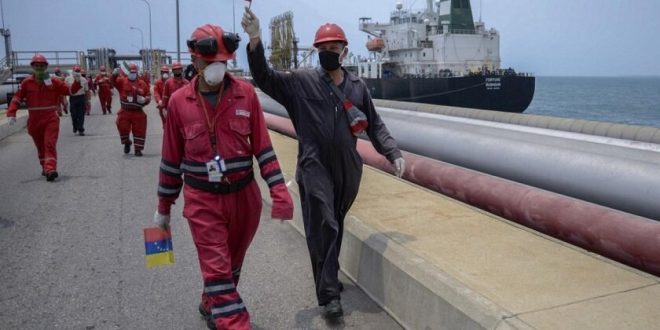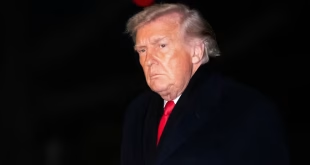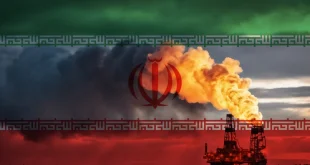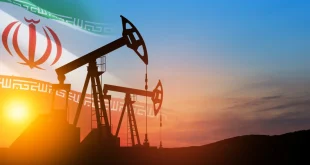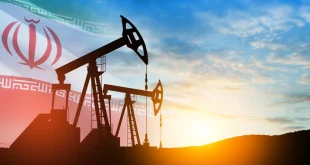| Key Points Mutual interests and geopolitical considerations have long influenced the Iran-Venezuela energy relationship. Iran aims to increase Venezuela’s refining capacity by revamping its refining complex and reducing its reliance on US technology.Despite the rise in petroleum prices, trade and investment between Iran and Venezuela will continue to be limited due to their middle-income status, resource constraints, the need for FDIs, ongoing and stricter sanctions on their economies, and increasing sociopolitical and economic instability within their countries. The ongoing nuclear negotiations and the potential nuclear agreement between Iran and major powers will influence the future of Iran-Venezuela energy relations.By working together, the two nations can leverage their strengths and address energy concerns. |
Mutual interests and geopolitical considerations have long influenced the Iran-Venezuela energy relationship. Their shared status as significant oil producers, enabling knowledge sharing and technical help in discovering, extracting, and processing oil and gas resources and bypassing sanctions, essentially drive the two countries’ energy connections. Defying the United States sanctions through the Iran-Venezuela geopolitical alliance is also viewed as challenging Washington’s hegemony.
The two countries are also committed to strengthening their bilateral relations, focusing on energy collaboration. In a recent meeting, both countries’ presidents expressed their desire to enhance political, diplomatic, and cultural ties. Discussions have centered around joint ventures, technology exchanges, and investment opportunities in the oil sector to improve extraction and production efficiency.
The two countries signed a 20-year collaboration agreement during President Nicolas Maduro’s visit to Iran. The deal aims to enhance their relations, particularly in the energy sector, involving joint efforts in oil and gas extraction, processing, distribution, technology transfer, and investment opportunities. The agreement also covers infrastructure, technology, and agriculture. This long-term commitment highlights energy’s pivotal role in their bilateral ties.
Bypassing Sanctions
In 2020, Iran sent fuel ships to Venezuela to support its ally during a fuel shortage and to challenge the United States sanctions. The move demonstrated solidarity between the two countries and showcased Iran’s willingness to assist nations facing similar challenges due to sanctions or geopolitical factors.
The shifting energy dynamics between the US, Iran, and Venezuela are analyzed in light of President Biden’s administration. Factors such as the military’s backing of President Maduro, the decline in Guaidó’s popularity, and the need for alternative energy sources due to Russian oil import restrictions are examined. The analysis also explores the potential effects on global energy markets and Venezuela’s role in the US energy supply.
Iran is investing in Venezuela’s largest refinery (El-Palito)to enhance bilateral cooperation and strengthen economic ties. Iran aims to increase Venezuela’s refining capacity by revamping its refining complex and reducing its reliance on US technology. This investment allows Iran to showcase its technical expertise and establish a foothold in Venezuela’s energy sector. It also allows Iran to diversify oil sales and expand its influence in Latin America.
Iran plans to increase its involvement in offshore refinery projects over five years as part of its energy production and diplomatic efforts. The Ministry of Oil has authorized the construction of new refineries or acquiring shares in existing facilities abroad to maximize production and expand Iran’s presence in international energy markets. This strategic move is intended to enhance energy diplomacy and generate global opportunities for Iran.
Analysts claim that the Iran-Venezuela relationship should be considered tactical rather than strategic and should not seriously threaten American efforts to remove President Maduro. They contend that while recent events might cause alarm, the historical backdrop and ongoing conditions indicate that the two nations’ partnership is not as strong as it once was. This viewpoint emphasizes the need for a complex analysis of the Iran-Venezuela connection and warns against overestimating its significance for the larger geopolitical picture.
Energy Relations: A Win-Win Game?
Iran’s former representative to OPEC, Mohammad Khattibi, believes that increased Iran-Venezuela cooperation in the oil industry would be mutually beneficial. He argues that Iran’s technical capabilities can help meet Venezuela’s oil industry needs, and Venezuela’s heavy oil can benefit from blending with Iranian crude. Khattibi suggests that success in the Venezuelan market could pave the way for Iran’s entry into other markets, showcasing its technical expertise. This collaboration has the potential to generate further demand for Iranian energy sector capabilities.
Iran invests in underground refineries in Venezuela and Latin America to achieve multiple goals. It diversifies oil sales by refining crude oil in these refineries and bypassing sanctions. This approach resolves domestic issues, adds value, and mitigates the impact of sanctions. Iran boosts its oil production and sales by participating in gasoline and refined product production. Ultimately, these investments contribute to Iran’s long-term objective of enhancing energy diplomacy and expanding its international market share.
Iran is investing in renovating Venezuelan oil refineries to boost their capacity and lessen Venezuela’s reliance on US refinery technology. The El-Palito plant is expected to receive a €460 million contract from the National Iranian Oil Refining and Distribution Company (NIORDC), which has already obtained a €110 million contract for the Paraguana refinery complex. The goal is to fix distillation units by fusing Chinese and Iranian components with already-existing US machinery.
Despite the rise in petroleum prices, trade and investment between Iran and Venezuela will continue to be limited due to their middle-income status, resource constraints, the need for foreign direct investment, ongoing and stricter sanctions on their economies, and increasing sociopolitical and economic instability within their countries.
To mitigate or reverse this trend, despite their rhetoric on independence and self-sufficiency, both nations must either secure sanctions relief from the United States or gain stronger support from China and Russia, their main competitors. Tehran entered into a 25-year cooperation agreement with Beijing. It may soon do the same with Moscow, even though the specifics of these pacts remain undisclosed, similar to the roadmap with Caracas.
Conclusion
The ongoing nuclear negotiations and the potential nuclear agreement between Iran and major powers will influence the future of Iran-Venezuela energy relations. This could lead to loosening sanctions and opening up opportunities for increased cooperation on energy issues. Both countries have shared interests in the energy sector, including the exchange of technology and financial resources.
Energy sector collaboration can help address the infrastructure challenges both nations face. However, the details and implementation of the nuclear agreement will determine the extent of their energy cooperation. Financial resources and technological expertise from foreign sources are crucial for resolving energy infrastructure issues in Iran and Venezuela. US sanctions have significantly impacted Venezuela’s oil industry, causing refinery outages and a lack of investment. Similarly, Iran has faced limitations on its oil exports due to sanctions.
By working together, the two nations can leverage their strengths and address energy concerns. The outcome of the nuclear negotiations, the potential nuclear deal, and the relaxation of US sanctions against Venezuela will significantly shape the future of Iran-Venezuela energy relations. Both countries will need foreign financial and technological resources to overcome infrastructure challenges.
www.https://epc.ae/

